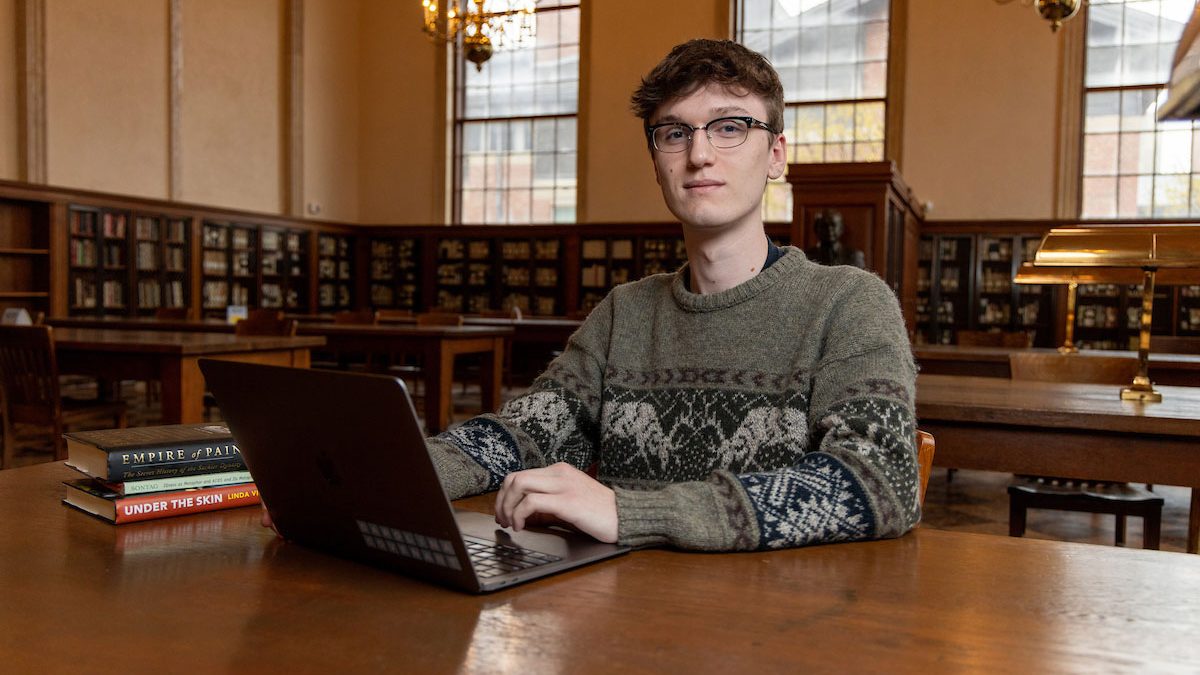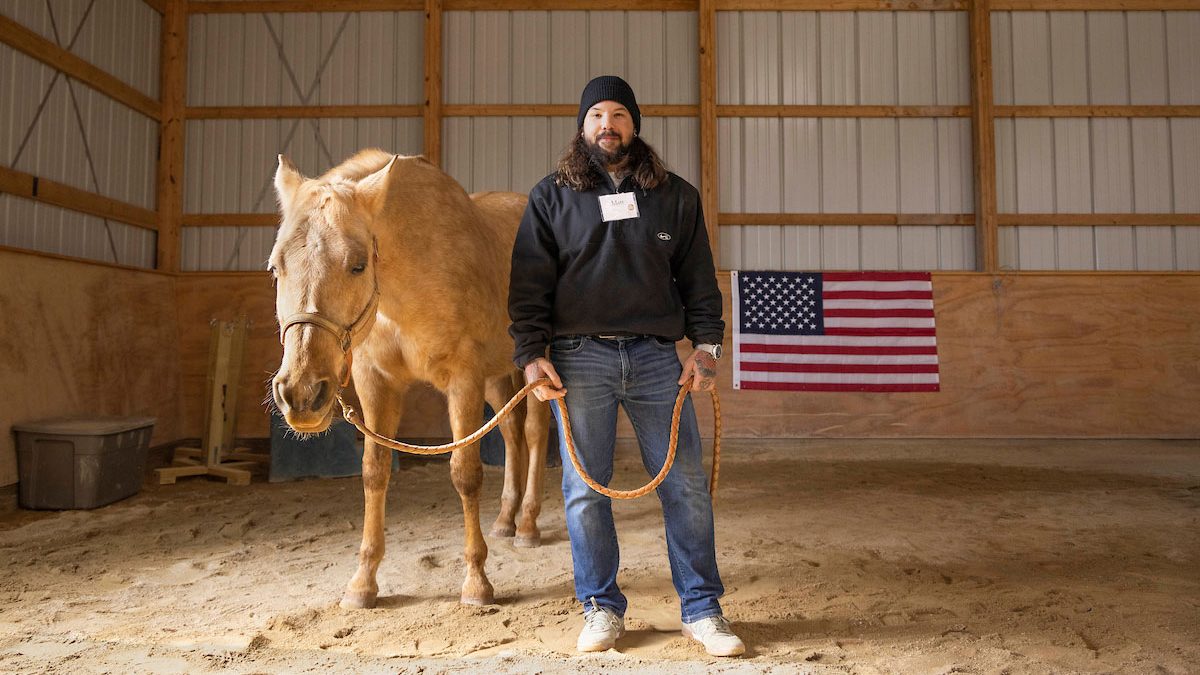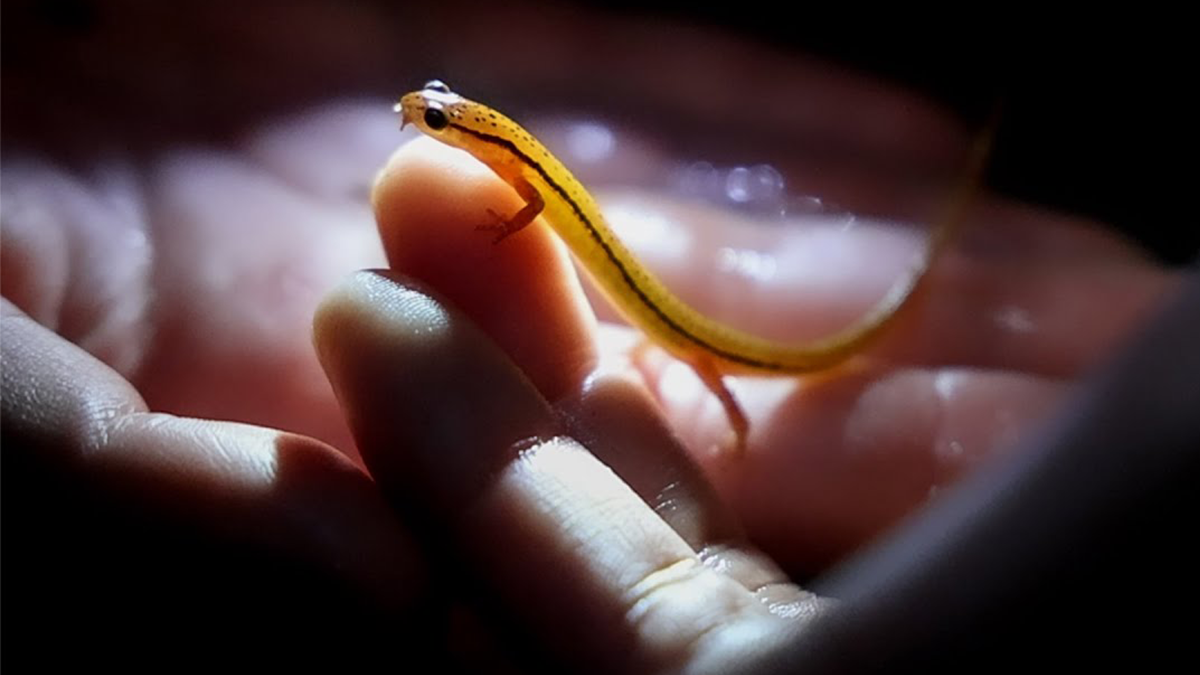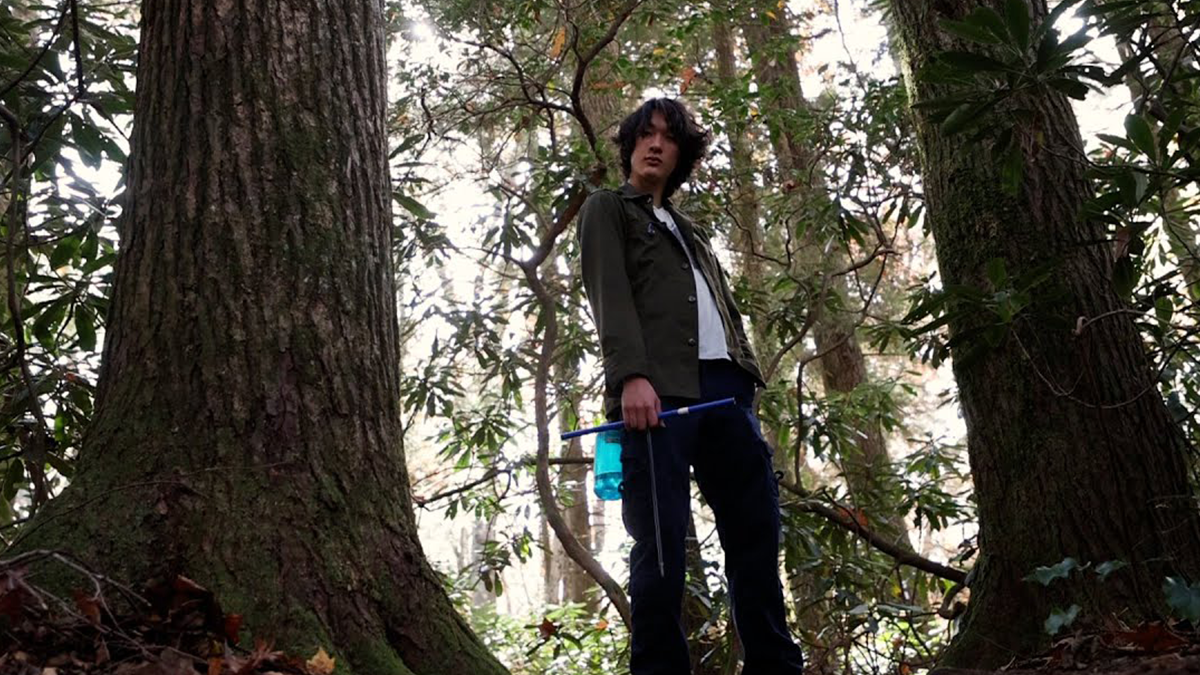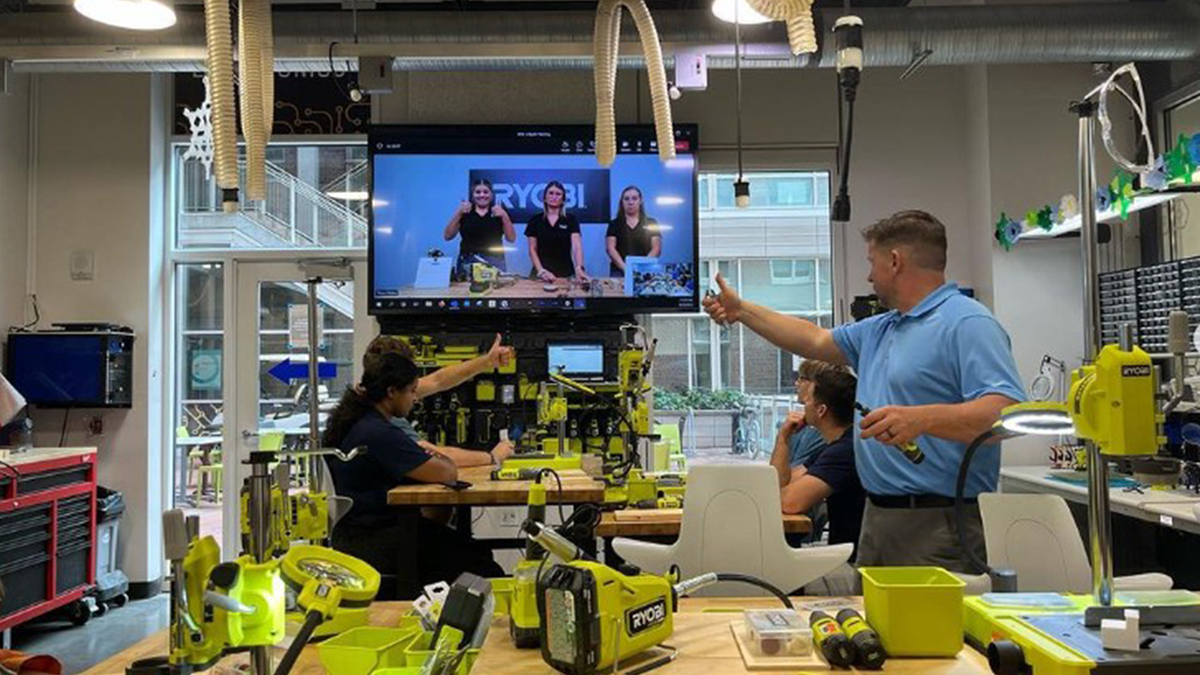My Miracle on Ice by Jim Lampley
Carolina alumnus Jim Lampley ’71, American sportscaster, news anchor, and HBO World Championship Boxing announcer for 30 years, shares his experience covering the "Miracle on Ice."
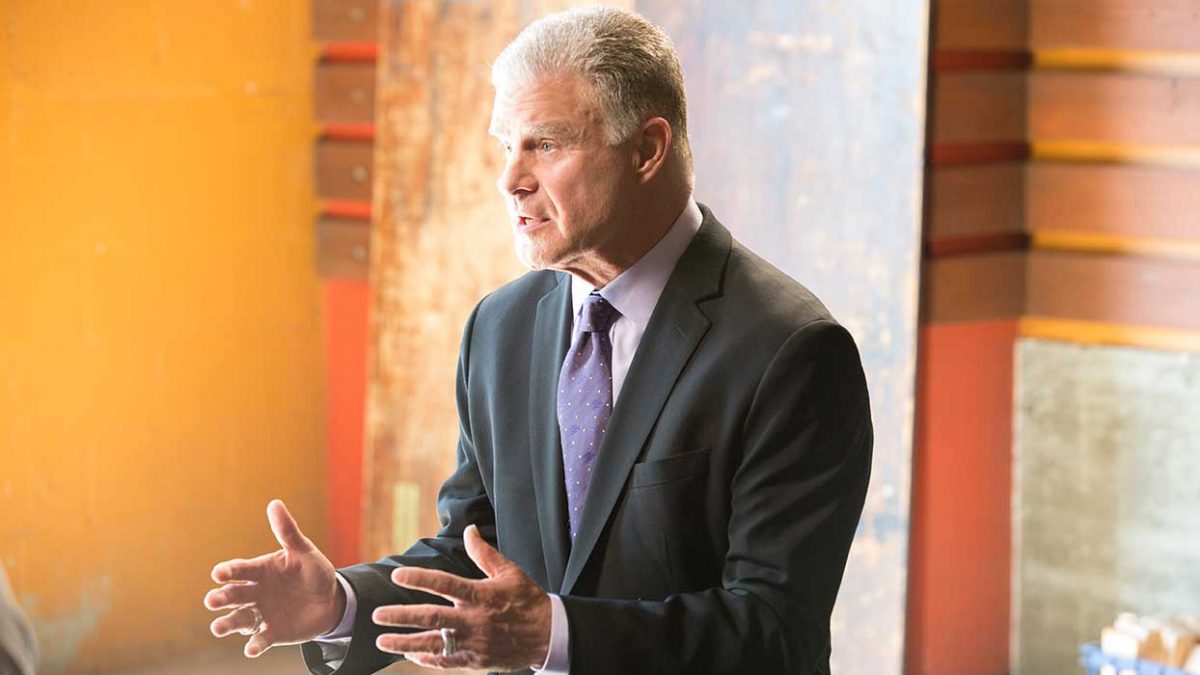
Carolina alumnus Jim Lampley ’71, American sportscaster, news anchor, and HBO World Championship Boxing announcer for 30 years, shares his experience covering the "Miracle on Ice."
Foreword by UNC-Chapel Hill Chancellor Kevin M. Guskiewicz
April 8, 2020
As chancellor, there’s nothing I enjoy more than talking about the uniquely Carolina programs that differentiate us and connect our students to experiences that inspire them to dream big.
For some students, this is enrolling in the Shuford Away program, where they study and work in Silicon Valley as part of our Shuford Program in Entrepreneurship. For others, it can be taking voice lessons from a Metropolitan Opera star or building a 3D medical device in our BeAM makerspace alongside biomedical engineering or applied physical science faculty. We are always looking for the next special connection and opportunity for our students.
In the summer of 2017, as dean of the College of Arts & Sciences, I had the opportunity to meet Carolina alumnus Jim Lampley ’71. Lampley is probably best known for having covered a record 14 Olympic Games on U.S. television and for his entertaining and animated blow-by-blow announcing on HBO’s World Championship Boxing for 30 years. I was immediately taken by his love for his alma mater and his eagerness to want to give back. He captured my attention through his storytelling. Over that two-and-a half-hour lunch, I learned about his relationship with the greatest prize fighter of our lifetime, Muhammad Ali, who Lampley characterized as a champion of so much more outside the boxing ring than for what he accomplished inside the ring. If anyone was ever going to convince me — a concussion researcher — that boxing was okay, or even good, it was Jim Lampley. He got me close, as we amused each other over a friendly debate about the value of professional boxing.
This was the start of a friendship and an opportunity to bring Jim back home to continue that storytelling before our Carolina students, many of whom likely never knew Jim Lampley the broadcaster, but whose parents certainly did. Department of Communication Chair Patricia Parker, who joined us at lunch that day, also knew Jim well and recognized the value he could bring to her department and its students. After 45 years of work in network television sports and news, Lampley returned to Chapel Hill in January to begin teaching COMM 490, “Evolution of Storytelling in Electronic News Media,” an undergraduate course he developed within the College of Arts & Sciences’ Department of Communication. The course reflects both Lampley’s experiences — as a reporter, anchor, producer and writer — and his deeply informed overview of how all those processes coalesce.
When face-to-face interaction with students was interrupted by the coronavirus pandemic, the first-time instructor sought new techniques for advancing the course. Lampley sent the article below as an example of how a great storyteller — in this case, legendary ABC Sports President Roone Arledge — uses trained instincts to anticipate and elevate a story. This first-person account by Lampley took place 40 years ago, and like many of you — I can remember exactly where I was for this historic moment.
The coronavirus pandemic has not stopped our faculty from motivating and connecting with our students. Imagine being a student in this sports-broadcasting legend’s class. Imagine the dreams this class will inspire. Imagine the ways our students will reach for the stars. Enjoy!
Shared with his COMM 490 class, March 2020
The story itself was so explosive for the American public at the time it took place that I have to focus on our age difference to remind myself that most or perhaps all of you are largely unaware of the details. Maybe a relative or a teacher made reference to it at some point. Maybe Todd or Lindsey is advanced enough in age to have seen the movie which recited the glory of it all. Or maybe this is all new to all of you.
Looking to the possible continuation of my teaching experience, I am considering ideas for a course that bases itself on the many instances — more than most of us would think — when a sports event or story crossed the line into truly meaningful news. And this would be front and center in that content scenario. This is unique, because in my informed opinion, the Miracle on Ice was the greatest sports story in American history, and it was every bit as salient as a news story because of the moment in time at which it took place. Now we are working through a moment in time, a moment in crisis, which is every bit as psychically challenging as were the early days of 1980, and we can only hope that something just as rejuvenating emerges to give us hope. I can dream of that because I watched just such a dream come true.
At that time the issue wasn’t toilet paper or food. It was gasoline. The complicated global patchwork of oil politics had at that moment conspired to make supply unusually scarce in America, and in January 1980 it wasn’t unusual for working Americans to have to get into their cars before daylight and wait in three-hour lines to pay exorbitant prices for gas to drive to work. This moment of humiliation was taking place not terribly far down the temporal road from the nation’s humiliating exit from a war it couldn’t win in Vietnam, and at the same time when 52 Americans were being held hostage at the American Embassy in Teheran, an impasse the Carter Administration seemed powerless to solve. All those conditions clouded the national environment and temperament as delegations from around the globe arrived in the tiny upstate New York village of Lake Placid for the Winter Olympic Games.
Lake Placid was to be my third Olympics with ABC Sports. Right up until two weeks prior to the Opening Ceremony my assignment was to handle play by play on bobsleds and luge competition. But as the picture came into focus, it became clear those Games would be a political event, with significant stories emerging on two fronts: the clear inability of the local organizers to conquer issues relative to the arrival of large numbers of people from all over the globe into a tiny town with no more than two or three small hotels, no transportation infrastructure to speak of, with competition sites two or three hours, at least, away from the nearest major cities; and the sudden desire of the Carter Administration to move, delay or cancel the Moscow Games scheduled for later that summer as a political protest against the presence of Soviet troops in Afghanistan, a nation which was seen as an American ally at the time. With only 10 days to go my assignment was switched, and now I would be the designated political reporter for both ABC Sports and ABC News. As the Games got underway, I was busy, sometimes racing out to the local airport to interview Assistant Secretary of State Hodding Carter or Secretary of State Cyrus Vance as they arrived to negotiate with the International Olympic Committee, sometimes standing at the front of news conferences at which local organizing committee executive Petr Spurney spewed lies about his busing system or ticket distribution, while thousands of ticket holders stood freezing in remote parking lots waiting for buses which never arrived.
Meanwhile the hockey competition got underway. The Soviet national team was the most impregnable juggernaut in international sports, gold medalist in every Olympics and World Championship in memory, undefeated for more than a decade in those competitions, runaway conqueror the preceding year of a National Hockey League all-star team in a head-to-head series. The American team couldn’t have been more opposite, a hand-to-mouth aggregate of college players and semi-pros with no perceived chance at competing for a medal. A few days before the opening ceremony the Americans finished up a 61-game pre-Olympic prep schedule with a marquee matchup against the Soviets in Madison Square Garden. The final score was 10-3, and in retrospect it was clear the Russians had gone easy on their outmanned opponent. It could easily have been 20-3.
So there was no overwhelming public notice on the first night of competition when the American team got what amounted to an upset draw with Sweden on a last second slap-shot goal from the blue line. Nor were there blaring headlines two nights later when they stunned powerful Czechoslovakia with a seven-goal outburst. Then there were wins over Norway, Romania and West Germany, and surprisingly in week two of the Olympics, the Americans were headed toward the four-team medal round. But cold reality stared them in the face: a semi-final matchup with Russia’s big red machine, scheduled for 5:00 Friday afternoon.
Now that the American team had become a story in an Olympics largely devoid of noteworthy American stories, ABC and the USA approached the Olympics authorities about moving the game to prime time. But the Soviets demurred, and ABC was reduced to telegraphing to the audience that it would be broadcast in prime time, in effect a three-hour delay. And why would that matter? Russia hadn’t lost an international hockey game of significance since 1968. Twelve years of Olympics and World Championships without a loss.
It was February 22, 1980. At 5:00 I was seated in an edit bay in the ABC broadcast center, supervising the edit of a compendium feature that would tie together my two weeks of stories for air on the Sunday afternoon closing ceremony show. As my producer and an editor worked through the material, we all glanced from time to time at a tiny monitor mounted above the side of the edit bay, a four-by-six-inch screen on which the hockey game was appearing live. A frenetic first period was winding down, and in the closing seconds we were watching out of the corners of our eyes as American star Mark Johnson chased a loose puck inside the Soviet blue line, and got his stick onto it just in time to jam it into the corner of the net. Stunningly, the game was tied at two with two periods to go.
At that time every ABC Sports facility, whether it was an office or a control room or a technical facility, was equipped with a red telephone. Years before I had been instructed to understand the red phone was called the Roone phone, and if it were ever to ring, the voice at the other end would be the legendary chief executive of the sports division, the executive producer of every sports program the network produced, Roone Arledge. Ten seconds after Mark Johnson’s goal, the red phone rang, an event I had never before witnessed in six years at ABC. A quick assessment of the personnel in the edit bay established that I was the senior participant, and when I picked up the receiver I instantly recognized Roone’s voice.
“Is Jim Lampley there?”
“Yes, Roone, it’s me.”
“What are you doing?”
I ran it down for him.
“Drop that right now. If something unusual happens in the hockey game, we are going to need an interview to button it up before we go off the air. Get over to that arena and make sure you can give us what we need. You just became our most important asset tonight.”
Arledge was legendary in television for his golden gut, the inexplicable ability to sense that something important was about to happen before it happened. As events would play out, never had that gut been more golden. Before I hung up the phone, I pointed out one possible obstacle.
“Roone, I don’t have the right credential to get into hockey.”
“You’ll get in.”
He hung up.
Getting into Olympic events without the right credential was well known to be borderline impossible, particularly at that time, just three Olympics removed from the Munich Massacre of Israeli athletes. But now I had no choice. My colleagues were smiling at my predicament as I bolted out the door.
Some things happen just because they are supposed to. When I arrived 10 minutes later at the Lake Placid High School hockey rink, the person who greeted me at the door was the venue manager, whom I had happened randomly to meet just a few days before. He let me in. The next challenge was to find a logical place to watch, where I wouldn’t be removed by ushers. I climbed onto a camera platform about 40 feet behind the announce table, where Al Michaels and Ken Dryden were calling the game. As the second period progressed, I struggled to stand still so as not to interfere with the work of two camera operators who were manning the two primary game coverage cameras. There was another man on the platform who also didn’t belong there, and eventually I recognized him: a famous Long Island folk-rocker named Harry Chapin, who had performed a concert in the Olympic Village the night before. I was a fan, but it was no time for greetings.
We barely glanced at each other as the drama ratcheted up. The Soviets were controlling play in the second period, but they struggled to score. As the period ended, they led 3-2, so numerically the scrappy Americans still had a chance. There were 20 minutes to go. Chapin and I still hadn’t shared a word, and he disappeared into a restroom. I spent the intermission chatting with the two cameramen.
As the third period began, the Russians re-assumed tactical command on the ice, but American goalie Jim Craig, a college player from Boston, was now a different person than at any previous time in his life. In hockey it is called “standing on your head,” that experience when suddenly no shot is good enough to pierce a goalie’s wall, no matter who is firing the puck and from where. The high school arena crowd began to sound like a full stadium. The faces of the Russian veterans began to clench up in frustration. With just under 12 minutes to go, tiny Mark Johnson, who for two weeks had suddenly been the hottest goal scorer in the world, slipped the puck under the Soviet goalie’s mitt again, and it was tied, 3-3.
That arena was huge for high school hockey. It seated 8,500 people, and the spontaneous roar that greeted Johnson’s second goal of the game made them sound like 85,000. Harry Chapin and I hadn’t yet exchanged a word, but simultaneously we leaped into each other’s arms and began jumping up and down, prompting both camera operators to turn and shout at us to stand still. From the beginning there had been a smattering of American flags visible in the crowd, but now suddenly it was as though someone had passed out another 6,000 of them. That crowd was now a rocking ocean of red, white and blue. And as play began again, the Soviet players looked mystified, as though they had been dropped off in a world they had never seen.
If you know anything at all about this story, you know that less than two minutes later a semi-pro journeyman named Mike Eruzione scored the most famous single goal in the history of hockey. You know that in the closing four minutes, Jim Craig stood on his head like no other goalie at any level ever has, and you know that despite a relentless escalating assault from the greatest hockey team in the world, the Americans held on for the 4-3 win. You can imagine that Jim Lampley and Harry Chapin shared one more bouncing celebratory hug, then bolted off the camera platform and never said a word to each other. Not one. And you realize that I was there with an assignment, and my work was just beginning.
I raced downstairs to the hallway outside the American locker room, where player after player stepped wet from the shower out the door into the media crush, and amid the noise and chaos, turned away from my frenzied shouting and disappeared into the opposite hallway. The last face to appear was that of Mike Eruzione. We had the same agent, and he was the only player on the team I had actually met. He recognized my voice.
To this day many millions of Americans believe, or want to believe, that they watched a live telecast of the game, climaxing with Al Michaels’ legendary play-by-play call as the clock dwindled: “Do you BELIEVE in miracles?” It’s somehow too incongruous for the majority of viewers to place in their minds’ eyes and ears that the game began at 5:00 p.m.; most of the true hockey fans in the audience were still at work; and more fans would watch it on tape and remember it as live than would actually have seen it live.
While most of America watched the game that night, I shared a dinner with Eruzione, Craig and Craig’s dad at one of the few real restaurants in Lake Placid. At 10:45 I led Mike and Jimmy to a spot in the middle of the main drag to face a camera, and as we waited for host Jim McKay to toss to me for the interview, a crowd of thousands assembled behind and around us.
Eruzione, who was clever, leaned over and whispered, “Lamps, if we had come out here and stood here at this point last night?”
I got it. “No one would have noticed.”
In the 40 years since that night, I have run into Jim Craig and Mike Eruzione a handful of times at Olympics-related events. Whenever it happens I find a moment to lean into Mike and whisper to him, “Mike, through the miracle of videotape, you are now the leading goal scorer in the history of hockey,” and every time, properly cued, he answers, “Lamps, it keeps going in, doesn’t it?” And it does. And it is still a miracle.
Two days later, before noon on a Sunday morning, a frenzied three-goal third period rally brought them from behind to beat Finland for the gold medal. Another incongruity almost impossible to believe in retrospect: if they had lost to Finland there would have been no medal at all, not even bronze.
And at a moment, like the present, it’s encouraging to remember: It didn’t end the Cold War. It didn’t free the hostages in Teheran. It didn’t lower the price of gas. But it did provide one of countless examples of how the affairs of the playing field can heighten and enlighten the state of the world with the definitive rationality of the scoreboard, borne aloft by the irrationality of hope. “Never say die,” was conceived as a metaphor. But right now, it’s the realest dream of all. And sometimes they do come true.
Lampley and his wife, Debra Schuss, have recently decided to make their move to Chapel Hill permanent. He will continue teaching courses in the UNC College of Arts & Sciences’ Department of Communication, and in the UNC Hussman School of Journalism and Media. Lampley also funded the Lampley Scholars Program in 2018 to support eight graduate students annually in the College of Arts & Sciences.
This piece was written on Lampley and Guskiewicz’s shared birthday, April 8th.
